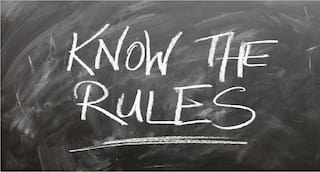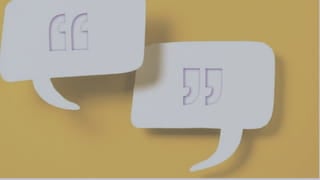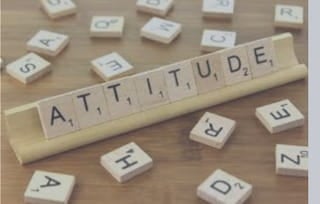Academic English
About The Course
In the past decades researchers discovered a mutual relationship between a student’s academic reading skills and academic success and influence. Some of the greatest Muslim scholars throughout history are recognised because of their writing and how their thoughts were articulated in their ability to write well. Good Reading and writing skills are an essential form of communication in all walks of life. Words are everything as they give the world and life and everything in it meaning. Strong communication through words is what keeps most of the world moving in the same general direction and has the greatest impact on people of all walks of life.
It utilizes one’s intelligence, education, and critical-thinking skills. Writers excel in their areas of interest as well as other areas because of this talent. They can convey thoughts in the writing form, ideas that can ultimately entertain a reader, attract a client and woo a potential customer. In several real-world ways, people who are good writers can influence the world. Learning a variety of writing skills isn’t as difficult as you may think. We’ve put together a unique course to help you make dramatic improvements to the quality of your writing.
This course is a hands‐on course designed to impart education in the foundational methods, techniques and skills of reading and writing well. This course will teach skills in Academic reading and writing for both professional activities as well as social. Once equipped with this knowledge set, and skills, participants would be well‐placed to be able to write well in all settings and also be informed on how one can get their works published as a book, magazine or a paper in a journal. In addition to their application in an academic setting, many of the methodologies discussed in this course will be similar to those deployed in professional reading and writing environments and beyond.
Teaching methods include readings, lectures, group discussions, exercises, and assignments. Lectures are designed such that ensure greater scholar participation. Students will be provided with the opportunity to apply their learning to a subject matter of their own choice in the field of Islamic studies, while increasing awareness about various types of resources that will be of use during the course of their studies. There will be activities and discussion topics to prompt and encourage reflection on thinking and reasoning themselves.
Course Team

Instructor

Instructor

Instructor

Instructor
Main Modules

1. Introduction
- About this course
- Importance of Reading well
- Importance of Writing well
- Argumentation
- Common writing Mistakes

2. How to Read Well
- Approach to text
- Active and Critical Reading
- Identifying Conclusions and Premises
- Outline, Paraphrase and Summarise
- Evaluating the Argument

3. How to Read an Argument
- Premises and Conclusions
- Deductive and Inductive Arguments
- Coherence of Conclusion and Premises
- True Premises
- Applying Rules

4. Rules of Style and Content
- Writing to your audience
- Avoiding Pretentiousness
- Overstating Premises and Conclusions
- Fair treatment of Opponents and Opposers
- Writing Clearly
- Inappropriate Emotional Appeals
- Caution with Assumptions
- Writing in First Person
- Discriminatory Language

5. Defending a Thesis in an Argumentative Essay
- Basic Essay Structure
- Writing the Essay : Step by Step
- Draft and Revising Drafts
- Producing Final Drafts

6. Avoiding Fallacious Reasoning
- Straw Man
- Appeal to Person
- Appeal to Popularity
- Appeal to Tradition
- Genetic Fallacy
- Equivocation
- Appeal to Ignorance
- False Dilemma
- Begging the Question
- Hasty Generalization
- Slippery Slope
- Composition and Division

7. Using, Quoting and Citing Sources
- When and How to Quote Sources
- Plagiarism
- Citing Sources
- Bibliographies

8. Citing Arabic Sources
- When and How to Quote Arabic Sources
- Plagiarism
- Citing Sources, Qurān and aḥadīth
- Bibliographies/ Editions

9. Writing Effective Sentences
- Subject and Verb Agreements
- Parallel Ideas and Forms
- Non-Fragmented Sentences
- Connecting Independent Clauses
- Delete the Deadwood
- Modifiers
- Tense, Voice, Number and Person
- Pronoun References

10. Choosing Right Words
- Noun and Verb Choice
- Active Voice
- Specific Terms
- Redundancy
- Connotation of Words
- Distinguishing Words
- Freshness and Cliches
- Mixing Metaphors
- Awkward Repetition

11. Principles of Writing
- The Transaction
- Simplicity
- Clutter
- Style
- The Audience
- Words
- Usage

12. Methods
- Unity
- The lead and the ending
- Bits and Piecesv

13. Forms
- Nonfiction as Literature
- Writing about People : The Interview
- Writing about Yourself : The Memoir
- Science and Technology
- Business Writing
- Writing about Arts: Critics and Columnists
- Writing Politics and Society
- Writing Humour
- Writing Theology
- Writing Philosophy

14. Attitudes
- report writing, and APA format –
- Sound of Voice
- Enjoyment, Fear and Confidence
- The Final Product
- Writers Decisions
15. Writing in Social Media
- Consistency
- Writing Toolbox
- Writing Tips
- Using Hashtags
- Active vs Passive Voice
- Putting Audience First
- Types of Social Media: Facebook, Twitter, Blogs, Tweet, LinkedIn etc
- What to Avoid

16. How to Publish your Work
- Preparing your Book or Essay for Publication
- Publishing Your Book with the Help of a Literary Agent
- Publishing Your Book by Contacting the Publisher Directly
- Self Publish Your Book
- How to Publish a research Paper
Modules
Who is it for ?
This course is suitable for ‘Ulama, students of knowledge and anyone interested in enhancing their ability in the power of reading and writing skills. This course is unique and ideal for those who wish to have a much broader, specialist understanding of the art of reading and writing, professionally, that can be applied to a broad range of disciplines.



Key Objectives
The primary objective of this course is to develop reading and writing skills amongst Muslim scholars and students generally, and to acquaint them with writings broadly. Specifically, the course aims at introducing them to the basic concepts used in this skillset and their approach focussed on Islamic studies subjects. It includes broad discussions on a range of topics from critical writing to good grammar.
At the end of this course students will be rounded in their ability to read and write well and present their work with value and impact. Students will:
• develop understanding of the basic framework of reading and writing.
• develop an understanding of various reading and writing techniques.
• develop an understanding of the Islamic ethical dimensions of critical thinking,
dialectics and how to articulate this in writing with good grammar and language usage
• Appreciate the components of Islamic scholarly writing and evaluate its quality.
Frequently Asked Questions
Are Al Balagh courses recognised or accredited?
Al Balagh courses do not provide an externally accredited or recognised qualification. Our own expert team works at the course content. With over 5000+ learners, we are continuously growing and our vision is to make Al Balagh qualifications renowned worldwide through our expert team, without seeking formal accreditation or recognition from external institutional bodies.
How is this online course structured?
Our online course comprises live interactive online sessions, pre-recorded videos, online course material that include, presentations, reading material & online learning activities. Students may ask questions and get their doubts cleared from their respective lecturers, if any. Our dedicated academic support team will assist you as required.
When will I have access to the online course material?
Upon successful enrollment, you will get access to myAlBalagh (our online learning portal) within 24 hours.
Will I get notification for live sessions?
All students will receive notification for their course live sessions via email and/or course WhatsApp group. You may also check the Course Schedule tab on your dashboard after logging in on our website or Mobile App.
Is it mandatory to attend live sessions?
We always encourage attending live sessions among students, but it is not compulsory for technical course progress of the students.
I missed a live session. Can I get the video recordings?
If you are unable to attend a live session or have missed it, you can view recorded sessions on your course dashboard. You can access all the completed Recordings, PPT and assessments anytime.
Can I download the recordings and watch it offline?
You can download recordings and PPT of the course sessions from the myAlBalagh mobile App for all the enrolled courses.The recordings will be available for students after 48 hours of the live session.
Do I get marks for watching course recordings and presentations?
There are no additional marks for watching the course recordings. Only the module Assessments and the final exam add up to the final score.You can check the individual scores of your Assessments under the Progress tab of myAlBalagh.
I have doubts but I cannot attend the live session. Any other way to ask my questions?
You can discuss your doubts via Course WhatsApp Group dedicated for student discussion or access the Discussion Board on myAlBalagh. It is a platform for you to ask questions, discuss and get your doubts cleared.
When will the final exam be held?
The Final Exam will be held at the end of the course and will be a Graded And Timed Exam.
How do I interact with my classmates?
You can interact with your classmates on our Whatsapp Group exclusive for the course students. Furthermore, you can use the Discussion Board to connect with other course students as well.
How long will I have access to the online course?
You will have access to the online course content for up to 2 years. If you want lifetime access, contact our admin team via Email at [email protected].
I am facing trouble signing into the “myAlBalagh” Online Student portal. What should I do?
In case you find any trouble accessing your account, then please contact us immediately. Our dedicated support team will ensure that your problem gets resolved at the earliest.
How can I apply for the Al Balagh Scholarship?
Al Balagh Academy values seekers of knowledge more than anything. Please visit here to apply for a scholarship. Our team will assess your application and respond in 2-3 working days.
Learn More About Our Courses?
Discuss your opinion with one of our friendly advisers

















